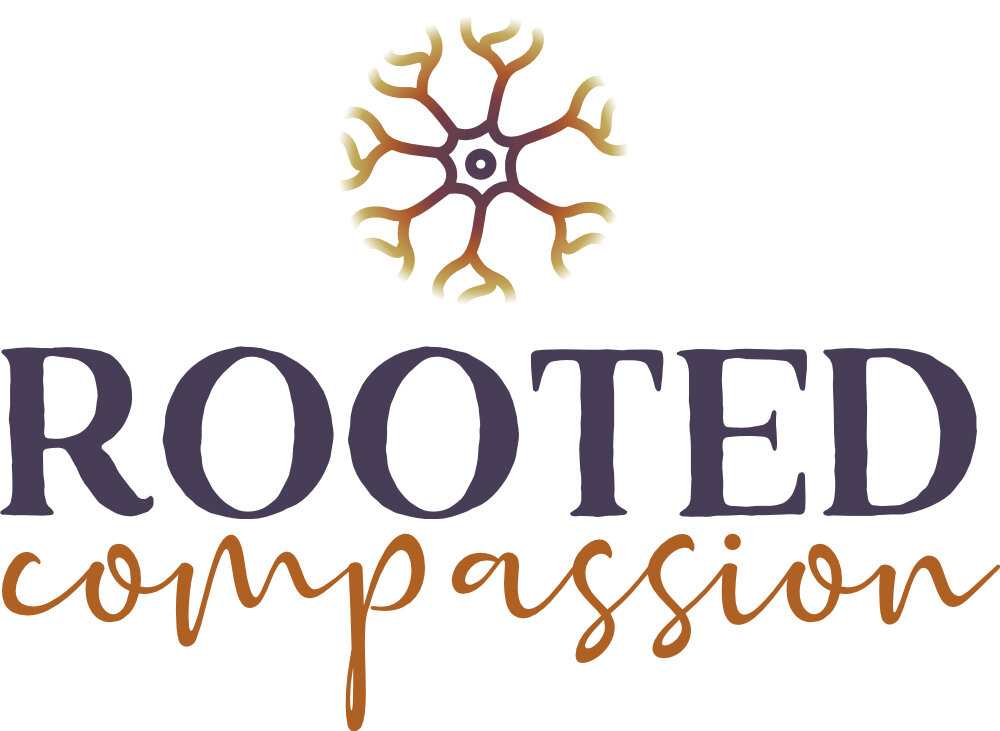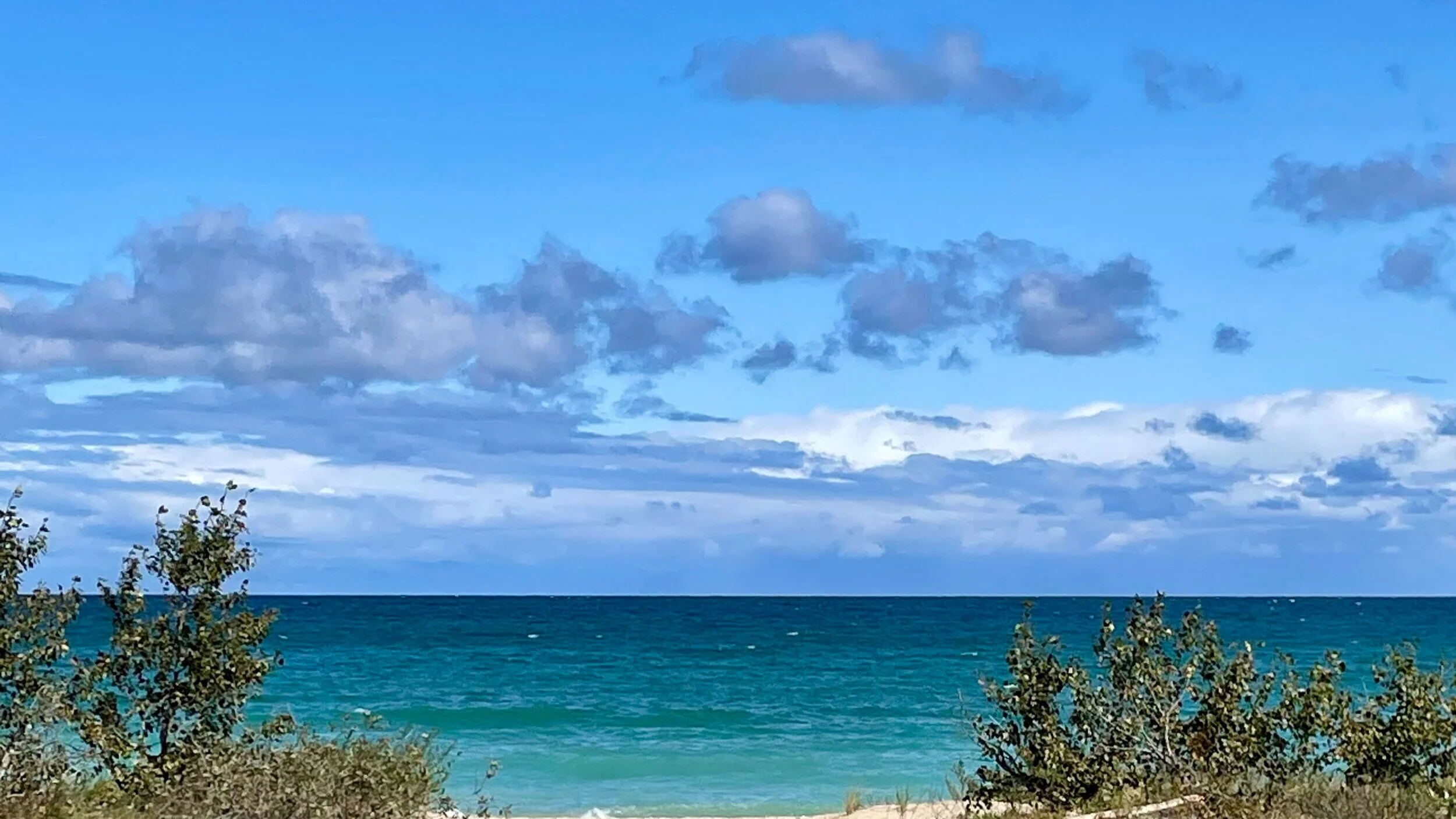Surprises Can Be Fun But Can Also Trigger Danger: How Does Your Nervous System Respond?
Following the departure of our kids to college, one for their senior year and the other their freshman year, we decided to take a trip to northern Michigan. We’ve come here for years as a generous family member has a home that they very graciously share with us. On this trip we decided to adventure to some places we haven’t gone before. Today we stumbled on this path that runs along the shore of Lake Huron.
When I got my first glimpse of Lake Huron, I was transported to somewhere, anywhere in the Caribbean.
The many shades of blue and teal water along with no land in sight inspired me to grab a towel and book for a day on the beach. Then the pine and birch trees came into view. I remembered I was at a lake! I have spent my fair share of time at lakes and oceans in my life. Today I was surprised as both came together so beautifully.
What has surprised you recently?
Maybe someone in your life shared some surprising news with you or a recent experience left you feeling unexpected emotions.
Maybe life threw you a curveball and you are left in a state of shock.
Maybe a stranger decided to pay for your coffee this morning and you walked away feeling delightfully surprised.
As we know, life is full of surprises (no surprise there, right?). We walk through our days not quite knowing what is waiting for us around the corner, but often thinking we do.
When our bodies experience a surprise of some sort, just like any other experience, our nervous system is what responds first.
For the most part, I would say the nervous system does not like surprises. Mine does not. Except the surprise today with the lake. My nervous system was all over that.
The surprises of my childhood weren’t typically good ones. I grew to be suspicious and wary of surprises. For those of us who experienced times in our life where we never knew what was coming next, surprises can move us into a flee or fight response, as the Polyvagal Theory explains.
As Stephen Porges, founder of the Polyvagal Theory, states, “Even though we may not always be aware of danger on a cognitive level, on a neurophysiological level, our body has already started a sequence of neural processes that would facilitate adaptive defense behaviors such as fight, flight or freeze.”
For some people, surprises trigger a sense of danger. As explained in the Polyvagal Theory, human beings are constantly assessing situations for safety—both physical and emotional because in all situations our human instinct is for survival and to avoid danger. (Psst … for more information about our nervous system, human connection and the Polyvagal Theory visit Rooted Compassion Counseling’s site or the Polyvagal Institute’s site).
For others, they love the rush a surprise brings—like the thrill from a roller coaster or the fear from a haunted house. Our nervous systems, while made up of the same anatomy and physiology, pattern into a variety of responses to our own personal surprises. There is no right or wrong way to pattern, but it is worth looking at how our nervous system responds and if that response is serving our mental health wellness today. At Rooted Compassion, our mental health counselors help you explore and understand your nervous system more profoundly. As you understand your own nervous system and its patterns more deeply, our therapists walk with you on your mental health journey to wellness.
At Rooted Compassion Counseling, we provide mental health counseling grounded in compassion, connection and resiliency. If you or someone you know may be looking to start therapy, give us a call!
Our counselors specialize in the following areas:
Trauma
Grief
Anxiety
Depression
Postpartum depression
PTSD
Bi-Polar Disorder
Borderline Personality Disorder
We would love to hear from you and partner with you as you learn more about yourself and your nervous system.



